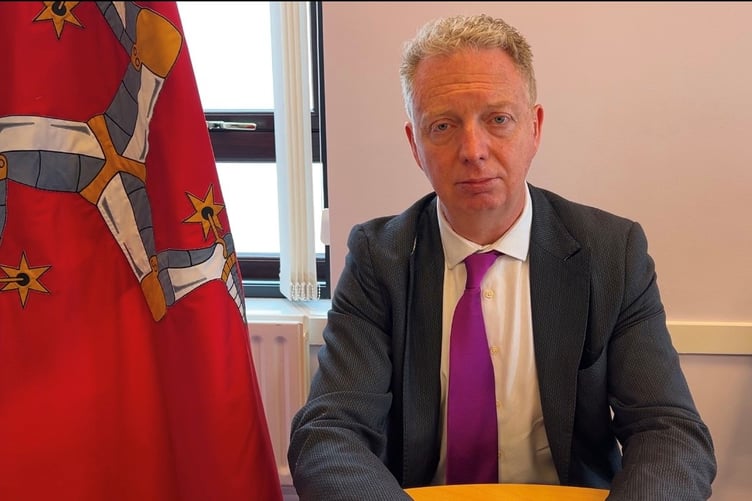Treasury Minister Dr Alex Allinson has said that increasing the Isle of Man’s minimum wage will ‘improve conditions for the lowest paid in society’, including those on worker migrant visas, despite concerns that the rise could cause job insecurity.
Speaking in the House of Keys on Tuesday, Dr Allinson said the new minimum wage, due to take effect from April 1, 2026, would apply to all workers on the island, regardless of immigration status.
‘The Minimum Wage Act 2001 applies to all those working in the island, which includes worker migrants,’ he told Arbory, Castletown and Malew MHK Jason Moorhouse.
‘Any worker, migrant or otherwise, who is currently being paid the minimum wage will be subject to the new wage rates from the first of April 2026.’
The minister said around 40% of worker migrants currently declare on their visa applications that they will be paid the minimum wage.
However, he added that the true number may be lower, as migrant workers are not required to inform immigration officials when their salaries increase.
‘The key objective for minimum wage policy,’ Dr Allinson said, ‘is to improve conditions for the lowest paid in society. Increasing the minimum wage to better reflect the cost of living in the Isle of Man will ensure that those worker migrants in lower-paid roles are better able to participate in society and contribute to the island’s economic prosperity.’
Mr Moorhouse raised concerns that some migrant workers feel insecure and fear losing their jobs as a result of the increase, which could force them to return home.
Dr Allinson said he was aware of those fears but stressed that international evidence showed little link between minimum wage rises and job losses.
‘When you look at the empirical data in terms of rises in the minimum wage, this is not borne out internationally,’ he said.
‘However, I can completely understand those fears. The increases approved by Tynwald last month have a six-month lead-in time to give better certainty and security to both employers and employees.’
The minister added that worker migrants made redundant for any reason could seek new employment while on the island or return home under existing immigration rules.
Responding to further questioning from Mr Moorhouse, Dr Allinson rejected the suggestion that migrant workers would be disproportionately affected.
‘The idea of increasing the minimum wage is for all workers on the Isle of Man, not just worker migrants,’ he said.
‘Any pressures that this may cause in terms of employment will obviously be borne by all those currently being paid the minimum wage.’
Douglas North MHK Joney Faragher warned that migrant workers were often ‘in the jobs with the least protection in employment matters’ and asked whether the Treasury had prepared for the possibility of redundancies among this group.
Dr Allinson replied that existing immigration processes already set out what would happen if a migrant worker lost their job.
‘Where an employer chooses to make a role redundant for any reason, the worker migrant visa is curtailed as standard practice, giving a 60-day grace period,’ he explained.
‘This allows the migrant to find another job or to return to their home country.
‘If they do not find another job within 60 days, they are placed on a temporary admission for one month to make travel arrangements. If these are not made, immigration will begin the enforced removal process, which would include any dependants of the migrant.’
Mr Moorhouse also asked whether any employers had raised concerns about the impact on migrant staff.
Dr Allinson said none had done so to date, but he would be open to discussion with businesses if issues arose.
Chris Thomas MHK questioned the minister’s repeated reference to international evidence showing minimal job impact from minimum wage rises, arguing that there were studies suggesting the opposite.
In response, Dr Allinson said: ‘There are differences of opinion, often based on political motivations rather than necessarily economic models.
‘But I would draw attention to the extensive report commissioned by the UK Government in 2019 from the Low Pay Commission, which looked at detailed research in the US, UK and elsewhere.’
The new minimum wage rates are set to come into force in April 2026 following Tynwald approval last month.



-(1).jpeg?width=209&height=140&crop=209:145,smart&quality=75)
